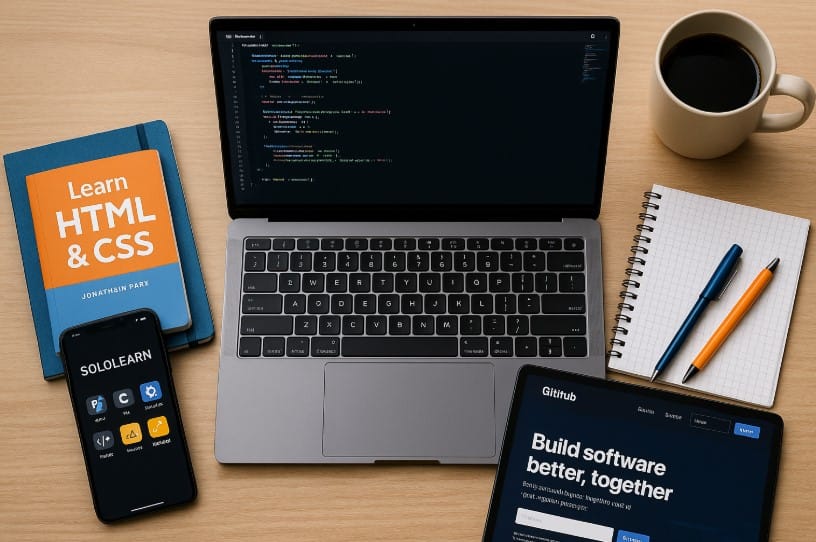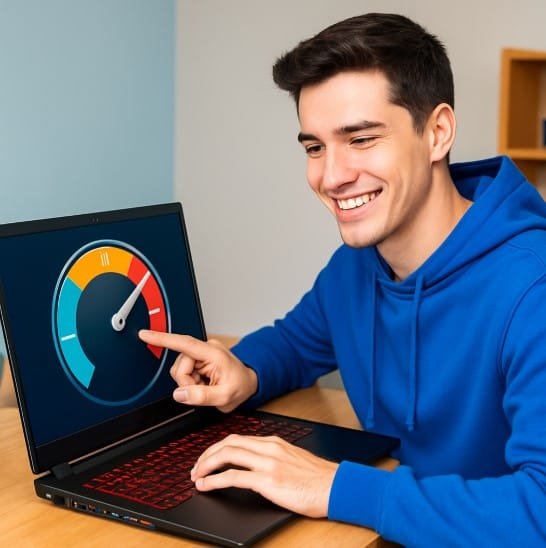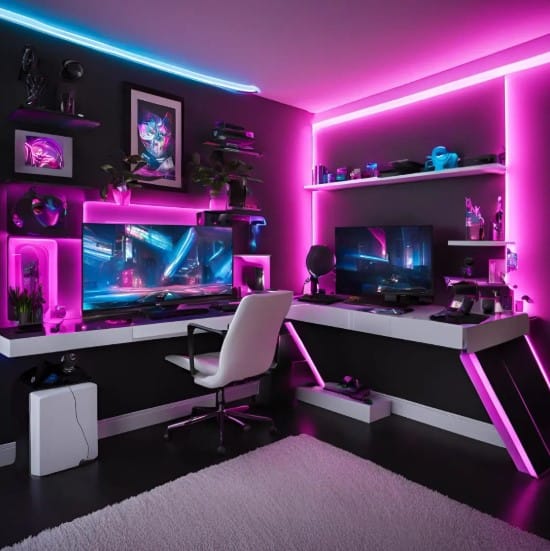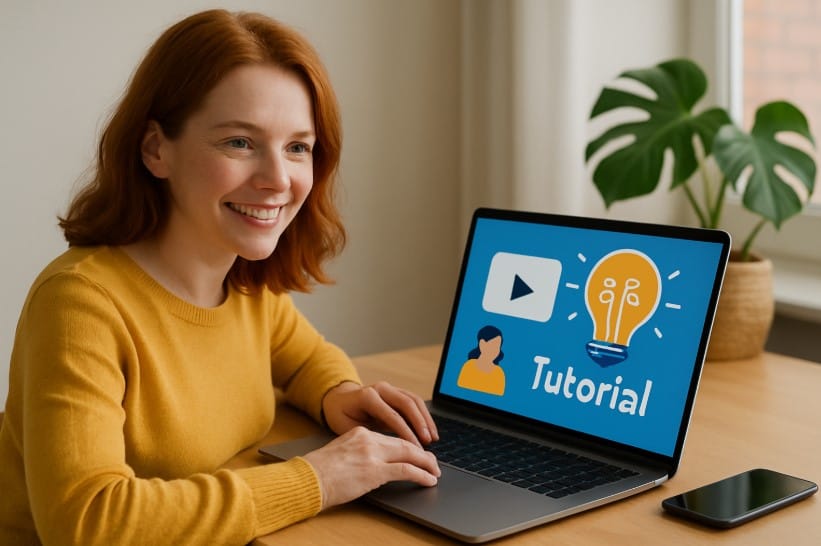Now Reading: Top online resources for learning coding fast
- 01
Top online resources for learning coding fast

Top online resources for learning coding fast
Online resources for learning coding are the best starting point for building real skills without all the stress. When I first decided to learn coding, I thought I needed to shell out thousands of dollars on courses or move to Silicon Valley. Turns out, there are way more free resources online than I ever expected. Between late nights on free coding platforms and weekends spent tinkering with small projects, I was able to build real skills without leaving my couch or blowing my budget. If you’re starting from scratch or trying to level up fast, the right tools can turn a mountain into a hill you can actually climb.
Best Free Coding Tools and Platforms for Beginners
Starting your coding journey doesn’t mean you have to empty your wallet. Some of the best online resources for learning coding are absolutely free and honestly, they’re better than a lot of paid programs out there. When you’re just beginning, the real challenge isn’t finding tools; it’s knowing which ones are actually worth your time.
One of the best free coding platforms for beginners is freeCodeCamp. It’s like having a personal tutor that patiently walks you through everything from HTML basics to full-blown JavaScript projects. Plus, it’s project-based, meaning you build real stuff as you learn, not just memorize theory. I still remember the first time I got a simple webpage to work; it felt like magic.
Another gem is Codecademy. While it offers paid options, there’s a ton you can do with a free account. It’s great for hands-on learners who prefer clicking their way through coding exercises. Think of it like a video game, but every level you beat means you’re one step closer to becoming a real developer.
If you want something even more flexible, check out The Odin Project. It’s a completely free, full-stack curriculum that teaches you how to build websites and web apps from scratch. And it’s not sugar-coated. It feels like real-world work. It’s one of the few online resources for learning coding that doesn’t just teach you “what” to code, but also how to think like a developer.
Of course, you can’t talk about learning to code without mentioning GitHub. Even if you’re not ready to contribute to open-source projects yet, simply browsing through other people’s code can teach you more than some textbooks. Plus, GitHub is full of beginner-friendly repositories like little starter kits you can clone, break, fix, and learn from at your own pace.
For those who prefer mobile learning, apps like SoloLearn are lifesavers. Imagine being stuck in a long line at the coffee shop, you could be knocking out a few coding challenges on your phone instead of just scrolling TikTok.
What this mean is that you don’t need a fancy setup or a Silicon Valley zip code to start. The internet is overflowing with online resources for learning coding, and many of them are completely free. Start with small, manageable projects, stick to a platform you enjoy, and don’t worry about “being perfect” because coding, like any new language, gets easier the more you practice.
Must-Have Developer Tools for Freelancers and Junior Developers
Breaking into freelancing or landing your first junior developer job can feel a little overwhelming just like trying to build a house with only a hammer and some nails. Luckily, there are tons of online resources for learning coding and tools that make the process way smoother. Whether you’re chasing freelance gigs or just getting your foot in the door, having the right setup can make all the difference.
First is Visual Studio Code (VS Code). This lightweight, free code editor is basically a Swiss Army knife for developers. It’s customizable, super fast, and packed with extensions that can do everything from debugging your code to managing Git repositories without ever leaving the app. If you’re serious about freelancing or starting a junior role, VS Code should be your best friend.
Another must-have is Git (and by extension, GitHub). Knowing how to track changes in your projects and collaborate with others is a huge deal. Imagine writing a 50-page paper and losing it all because you forgot to hit save? That’s what working without version control is like. Git makes sure you can roll back mistakes and work smoothly with clients or teammates.
Speaking of smooth workflows, Trello and Notion are goldmines for keeping your projects organized. As a freelancer, you’ll juggle multiple clients, deadlines, and random little updates. A simple Trello board or a Notion dashboard can help you track tasks, set reminders, and avoid last-minute panic.
Also, don’t overlook the importance of communication tools. Freelance and remote work thrive on clear, fast communication. Apps like Slack and Zoom are industry standards. They’re not just for chatting, they’re places where meetings happen, feedback is shared, and collaboration lives. Mastering these tools shows clients you’re professional and ready to work.
Of course, there are plenty of essential programming tools for developers that can give you a serious edge. Tools like Postman for testing APIs, Docker for managing environments, and Figma for working with designers are becoming increasingly important. You don’t have to be an expert at everything on day one, but having basic familiarity can make you stand out in a sea of beginners.
The truth is, freelancing and junior dev roles aren’t just about writing good code. They’re about delivering work efficiently, communicating well, and managing projects like a pro. That’s why using the right online resources for learning coding and pairing them with smart tools isn’t just helpful, it’s essential.
Your toolkit doesn’t have to be huge or expensive. Start small, get comfortable with a few core tools, and build from there. Every expert you look up to started exactly where you are now: figuring it out one project, one tool, and one mistake at a time.
Essential Online Resources for Self-Taught Coders and Startup Founders
If you’re teaching yourself to code or trying to build a startup from scratch, you’re basically playing two roles at once: Student and entrepreneur. That’s not easy, but the good news is that there are plenty of online resources for learning coding designed exactly for people like you. Whether you’re fixing bugs at midnight or hacking together your first app idea, the right tools can save you hours and a lot of headaches.
One of the best coding resources for self-taught programmers is CS50x by Harvard. It’s a free, full intro to computer science course, but don’t let the Harvard name scare you. The lectures are actually super engaging, and you can work through it at your own pace. If you want to build a strong foundation without paying a dime, CS50 is gold.
For startup founders and indie hackers, Product Hunt is another must-bookmark site. It’s not a coding course, but it’s a goldmine of new tools, apps, and tech ideas, many of which help with product development, coding, and even early marketing. Staying plugged into what’s trending can spark ideas or help you find the perfect tool to speed up your project.
Stack Overflow also deserves a shoutout. It’s the unofficial lifeline for coders everywhere. Whenever you hit a roadblock (and you will), chances are someone has asked the exact same question on Stack Overflow. Learning how to search smartly and ask good questions is a major part of becoming a real developer.
For building quick MVPs (minimum viable products), Bubble and Glide are awesome no-code/low-code tools. You don’t have to be an expert developer to create something users can actually interact with. These platforms are lifesavers if you’re in the early stages of a startup and just need to get your idea out into the world.
And don’t forget about communities. Sites like Dev.to and Indie Hackers are filled with people sharing tips, resources, and even their failures. Being part of a supportive community can keep you motivated when the journey gets tough as it will at some point.
Self-taught coding is a marathon, not a sprint. And the startup life? That’s a marathon and an obstacle course. But with the right online resources for learning coding and a few great communities cheering you on, you’re way more prepared than you think.
Top Tools for Web Developers and Mobile App Builders in 2025
The world of coding never sits still. What worked great last year might already be old news now. That’s why keeping up with the best online resources for learning coding and knowing the right tools to use is key if you want to stay competitive in 2025 and beyond.
For web developers, Next.js is continuing to dominate. If you’re looking to build fast, SEO-friendly websites and apps, learning Next.js is almost a no-brainer right now. Pair it with Tailwind CSS and you’ve got a slick, modern site that loads in a flash and looks amazing on any device. Both have huge, friendly communities and tons of tutorials, making them excellent online resources for learning coding in real-world projects.
On the mobile app side, Flutter is still riding high. Built by Google, Flutter lets you create apps for both iOS and Android from a single codebase. Think about it: instead of building two different apps, you write one set of code and reach both markets. Not only does this save time, but it’s also perfect for startups or indie developers trying to move fast.
If you’re serious about app development, having a solid developer toolkit for mobile app development is a game-changer. Tools like Firebase (for backend services), Figma (for UI/UX design), and VS Code (for writing and testing your code) are must-haves. Together, they cover everything from building your app to making it user-friendly and scalable.
Cloud platforms are also playing a bigger role than ever. Services like Vercel and Netlify make deploying your web apps ridiculously easy and sometimes with just a few clicks. No more scary server configurations or late nights trying to figure out why your website won’t load.
And let’s not forget AI. Tools like GitHub Copilot are giving developers a serious productivity boost by suggesting code as you type. It’s like having a really smart assistant who knows your coding style and can finish your thoughts before you do.
In short, whether you’re building sleek websites or powerful mobile apps, 2025 and the years beyond are packed with opportunities. With the right online resources for learning coding and a smart toolkit, you can build faster, smarter, and better without feeling like you’re stuck in the tech Stone Age.
Boosting Productivity: Essential Apps, IDEs, and Extensions for Developers
When you’re deep into coding, every little tool that saves you five minutes here or an extra click there adds up fast. That’s why finding the right online resources for learning coding and the best apps, IDEs, and browser extensions can seriously level up your game.
First off, let’s talk about code editors. While there are plenty out there, Visual Studio Code (VS Code) continues to be the go-to for many developers. It’s fast, free, and ridiculously customizable. You can install thousands of extensions that help with everything from syntax highlighting to AI-powered code suggestions. Having an IDE that fits your workflow is one of the best tools to boost productivity for developers, no question.
For managing time and tasks, apps like Trello and Notion are lifesavers. Coding isn’t just about writing lines of code; it’s about managing projects, remembering deadlines, and keeping track of dozens of little to-do’s. A simple board or list can clear your brain and make coding sessions way more focused.
Browser extensions deserve a special mention, too. If you’re doing any web development, WhatFont (to inspect fonts on websites) and ColorZilla (to grab any color code off a page) are super handy. Wappalyzer is another gem that lets you spy on what technologies a website is using and perfect for getting ideas or satisfying your curiosity.
Another underrated tool is Tabnine, an AI coding assistant that works right inside your IDE. It’s like having a second brain that finishes your code snippets while you’re still thinking about them. Pairing this with strong online resources for learning coding can really supercharge your learning and productivity at the same time.
If you’re working across devices or collaborating with others, tools like Slack and Zoom keep communication smooth and frustration low. It’s not glamorous, but fast, clear communication often separates good developers from great ones.
The truth is, you don’t have to grind harder, you just need to work smarter. Taking advantage of the best tools to boost productivity for developers lets you focus more on the fun, creative parts of coding and less on the tedious stuff. The right setup can turn a long, stressful project into something that actually feels fun to build.
Your Coding Journey Starts Now
Learning to code can feel like standing at the bottom of a mountain, staring up at a crazy-steep trail. But the truth is that you don’t have to climb it alone and you definitely don’t need the fanciest gear to get moving. Thanks to the endless online resources for learning coding, you can start building real skills today, no matter where you are or what your budget looks like.
The tools, apps, and platforms we’ve talked about aren’t just shiny objects. They’re real-life, battle-tested solutions that developers at every level from beginner freelancers to startup founders are using right now. Picking the right resources early can save you from wasting time, feeling lost, or getting burned out when things get tough.
Remember: it’s not about memorizing every coding language or mastering every tool overnight. It’s about building momentum. Choosing a few essential programming resources for software engineers, diving in, and learning as you go is how real growth happens. Start small, celebrate tiny wins, and stack them up over time.
If you’re feeling overwhelmed by how much there is to learn, that’s normal. Every developer, no matter how good they are now, was once sitting right where you are by googling questions late at night, breaking things by accident, and wondering if they were ever going to “get it right.”
There are so many online resources for learning coding today that you don’t need a college degree, a Silicon Valley zip code, or a giant wallet to make your mark. Whether you’re dreaming of building apps, designing websites, crunching data, or launching your own tech startup, the tools you need are literally a few clicks away.
So, here’s your next step: pick one tool, one platform, or one project to start with. Just one. Get your hands messy. Break things. Fix them. Laugh at your mistakes. Celebrate your wins. You’ll be amazed at how far you can go in just a few months.
Your coding journey isn’t about being perfect, it’s about moving forward. And with the right resources in your toolkit, you’re already way ahead of the game.















